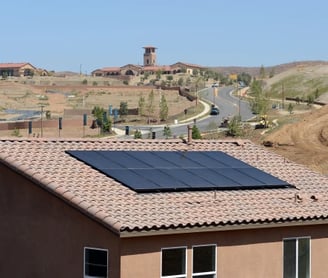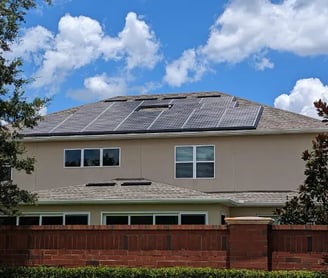What You need To Know About Solar.


"How Net Metering 3.0 Affects Homeowners in California"
Starting on April 14, NEM 3.0 will go into effect, bringing new changes to the way excess solar energy is credited back to homeowners. Under NEM 3.0, homeowners may receive lower credits for the excess energy they send back to the grid, reducing the financial return on their investment
However, if you go solar before April 14, you will be grandfathered in to NEM 2.0 for 20 years. This means that you will continue to receive the higher credits for excess energy under NEM 2.0, ensuring a higher financial return on your investment and lower electricity bills.
Additionally, going solar before April 14 helps you to take advantage of the financial incentives and tax credits currently available to support the growth of solar energy. By going solar before April 14, you can maximize your savings and reduce the cost of your investment.
Furthermore, going solar before April 14 is an investment in your home that can increase its value and make it more attractive to potential buyers because you will be a part of an SCE program that no longer is available. Solar panels are a desirable feature that many homebuyers are looking for, and they can increase the resale value of your home. By going solar, you can make your home more valuable and attractive to potential buyers.
In conclusion, going solar before April 14 is a huge benefit because you will get grandfathered into NEM 2.0 for 20 years. This ensures a higher financial return on your investment, lower electricity bills, and increase energy credits provided by SCE. Don't miss out on the opportunity to take advantage of NEM 2.0, go solar before April 14!
Benefits Of Solar


Cost Savings
Financial returns and lower monthly utility bills are major incentives for going solar. The exact savings you will see with solar depends on the following:
Electricity consumption
Solar energy system size
Whether you purchase or lease your system
Direct hours of daily sunlight
Size and angle of roof
A solar electric system provides an opportunity for anyone who is looking to reduce monthly utility bills and make a long-term, low-risk investment.
Increased Home Value
Solar panels are viewed as upgrades, like a renovated kitchen or a finished basement, so purchasing a solar energy system will likely increase your home’s value. Studies show that homeowners pay a premium for a solar home; one study by Lawrence Berkeley National Laboratory showed that on average, solar increased the value of a home by about $15,000. Although market factors like electricity rates and system size may impact the size of the premium, solar homes can sell for more than homes without PV. Learn more about solar and real estate.
Solar Works Everywhere
The solar resource of the United States is enormous. In fact, just one hour of noontime summer sun is equal to the annual U.S. electricity demand. Most states in the United States have good-to-excellent solar resource. Even places with relatively low solar resources, such as the Pacific Northwest and Alaska, can experience cost savings, and have similar solar resources to countries that have widely developed solar PV, like Germany.
Environmental
Each kilowatt-hour (kWh) of solar that is generated will substantially reduce greenhouse gas emissions like CO2, as well as other dangerous pollutants such as sulfur oxides, nitrogen oxides and particulate matter. Solar also reduces water consumption and withdrawal.
